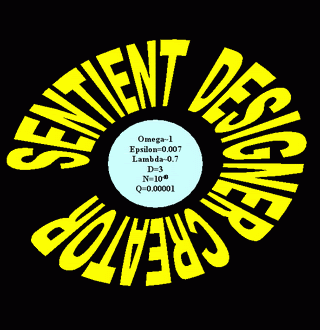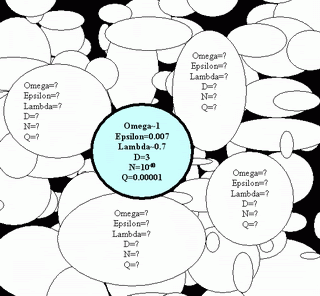otseng wrote:QED wrote:
You state that the "two explanations are mutually exclusive" but you don't support that statement. What is it that prevents there being a creator of the "mulitverse" for example?
There certainly could be a creator of the multiverses, but then why the need to add another layer (multiverses) and not go with the creator explanation directly?
I think you were quite wrong to reject olivergringold's analogy. A theist will inevitably present God as the
ultimate explanation for all phenomena. If we set up your test against
anything at all, God will (by the very definition of God as creator of all things) always be the simpler explanation.
If we want to know how the apparent fine-tuning of our universe came to be selected, we
want to know in the same spirit as we
want to know what makes lightning happen for example. While some would have it that the electrons forming the static charge are ultimately of God's making, we still know how the process works in greater detail than did the ancients who would have simply explained lighting as coming directly from God.
I have argued many times that it is wholly unreasonable to put God on one side of an explanatory balance and pretend that he's such a light-weight when we would also claim that his efforts were sufficient to fill a finely-tuned universe with so much "cleverly interacting stuff". Putting a "multiverse" on the other side of the balance we can see how a (virtually infinite) amount of "mainly useless stuff" lets us select our own existence (
in a similar way to how we get to select our own human existence from a huge sea of biological possibilities). God has no such quantity of "
understandable mass" with the capacity to deliver the goods.
otseng wrote:
QED wrote:Your only hope lies in showing how more than one universe cannot be.
My tactic is not demonstrating that other universes do not exist. But, my argument is that the "creator" explanation fulfills Occam's Razor better than the "many" explanation.
As I've pointed out above, if a designer also created the multiverses, then it adds an unnecessary layer by having to propose multiverses.
The necessity stems from its capacity to deliver an
understandable mechanism. If we are at liberty to allow Occam's Razor to decide between "black-box" systems that only "explain" by virtue of a label on the outside of the box declaring things like "GOD inside -- explains everything! (But please don't ask how GOD works)" we can match that with any other box with similar labelling. But if we have an
understandable system, with a reasonable amount of mathematical integrity and compatibility with known systems, then I would say this deserves some
real credit. Much more than we deserve to get by simply slapping labels on things.
Please keep in mind the different "explanations" for lightning if and when you respond to this.
otseng wrote:
But, even more relevant is that more assumptions are required in the "many" explanation. In both explanations, there is the assumption that something exists outside our universe.
This depends on how you are defining "our universe". If you mean the visible portion, then I'd have to remind you that it appears
our universe is expanding at greater than light speed which mandates the existence of "universe" beyond observable range. This is widely held to imply (for all practical purposes) an infinite region with which we have no communication with at all. I must remind you that when I say "multiverse" I use that term to refer to any additional "state-space" for what we might call "physics". We accept that within our own visible region "physics" is the same everywhere, but we wouldn't lightly extend that assumption to infinity. Several cosmological models generate an expectation of
inhomogeneity at larger scales.
otseng wrote:
In the many, there are also further assumptions:
- other universes can exist
I would say that this is a "given" by the FTL expansion rate of
our "universe".
otseng wrote:
- a bunch of those other universes exist
This can be reduced to disparate regions within the same "universe" (i.e. in the vast unobservable portion of our own universe).
otseng wrote:
- each of them have the same laws of physics and mathematics as ours
- they all have differing constants
I'm not sure what it means to have different laws of mathematics, but I'll certainly go along with that final assumption -- that the values of the constants, and possibly the physics into which we "plug them in", would vary from "place to place" such that some "places" were more hospitable to physicists than others.
otseng wrote:
Also, there are several independent arguments/evidence for a creator that corroborate with the design explanation.
OK, well it's tempting to ask what independent arguments/evidence you're referring to. Perhaps you would like to link me to what you think are the best three evidences so we can get some feeling for their weight in this argument. But I think your compulsion to introduce these additional arguments is a tacit acknowledgment of the inherent ambiguity created by our incomplete "view" of the greater context in which we are situated.






